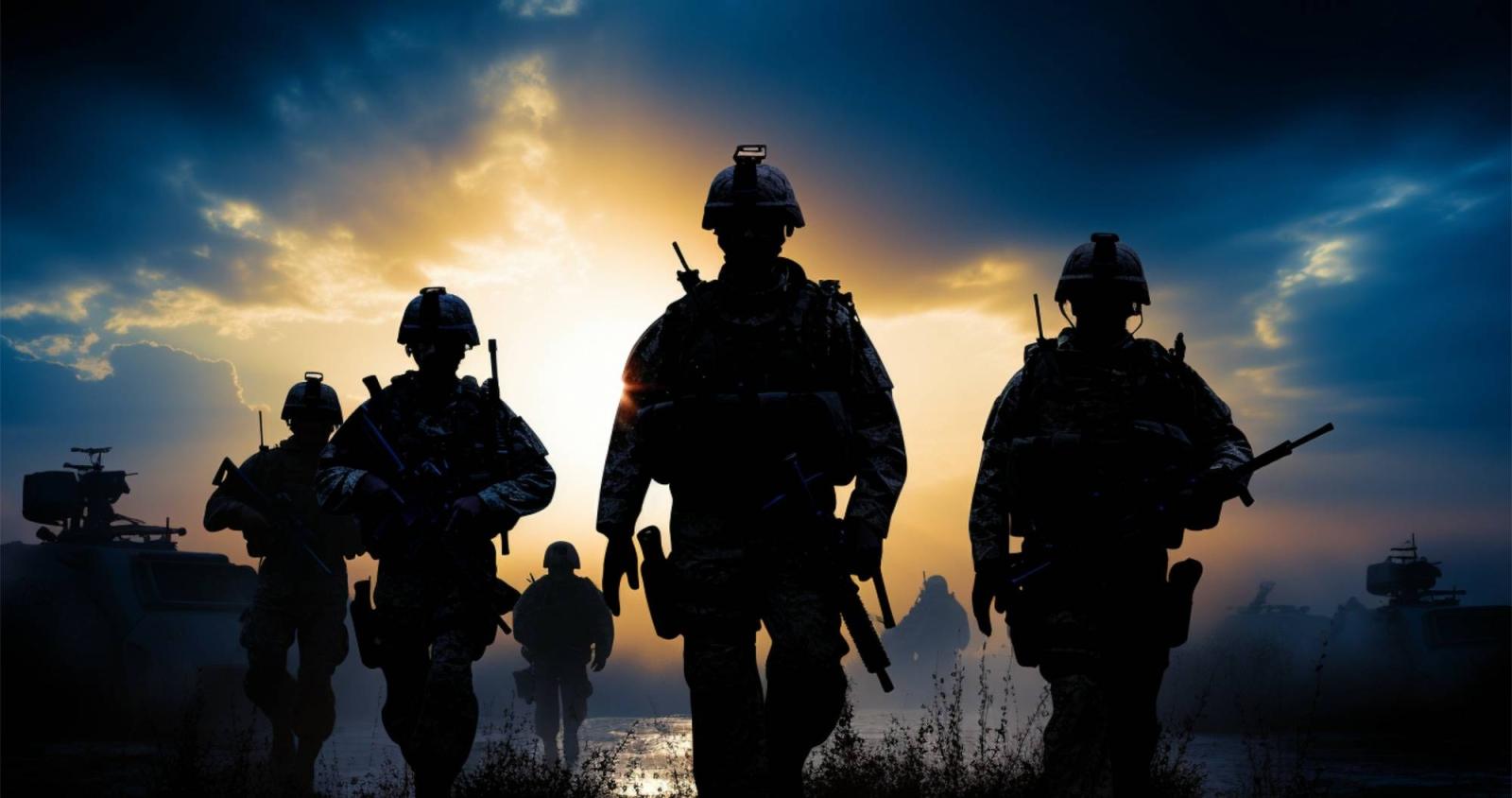Security Policy Studies Online
The Security Policy Studies (SPS) program offers two possible options to pursue online education:
1.
Full SPS Online Track in United States National Security
Starting in Fall 2022, the Security Policy Studies (SPS) program offered students the option of completing their MA degree fully online with a concentration in United States National Security only. Students interested in pursuing a fully online degree would take the same course credits (40) as those pursuing an in-person degree, including the following courses: cornerstone classes (6), concentration (15), skills and tools (3-6), electives (9-12), and the Global Capstone (4). The course content for online courses is the same as the in-person SPS program but offered in a different format (online) and consistent with the Elliott School’s Office of Online Education's pedagogy and methodology. However, the SPS online track will offer a more limited and narrower choice of electives than the in-person program.
2.
SPS Hybrid Option
SPS students, regardless of their concentration, have the option of taking a mix of in-person and online courses during Fall, Spring and Summer sessions. Almost all SPS online courses are also offered in an in-person format, that includes discussion sections for core courses, required courses, courses that satisfy requirements for the concentration in United States National Security, tool and skills courses, as well as Capstone. With this adjustment, students can study fully online, in-person or both (hybrid).
Sample Online Lectures with Expert Faculty
Norms in International Security by Professor Martha Finnemore
Gender Analysis by Dr. Shirley Graham
Intelligence Failure by Christopher A. Kojm
SPS and SPS Online Program Overview
SPS
- Degree
MA in Security Policy Studies
- Credits
40
- Admission Requirements
GRE/GMAT test-optional, two reference letters, statement of purpose, academic transcripts, essay, resume, and proof of English language proficiency
- Graduation Requirements Overview
40 credits, including 6 credits in core field courses, a 4-credit capstone sequence, choice of 3 credits in research tool courses or proof of language proficiency, 15 credits in a concentration, 3 credits in professional skills courses, and 9 to 12 credits in elective courses
- Curriculum Core Requirements (10 credits)
- IAFF 6161 International Security
- IAFF 6162 Security Policy Analysis
- IAFF 6898 Capstone Workshop
- IAFF 6899 Capstone Seminar
- Research Tool / Stats / or Language (3 credits)
Students may choose either a language or a relevant course to fulfill the tool requirement, example:
- IAFF 6501 Quant Methods
- IAFF 6216 Economic Tools
- IAFF 6118 Qual Methods
- Concentration Fields (15 credits)
Four Options:
- United States National Security
- Transnational Security
- Science and Technology
- Conflict Resolution
Students choose 4 courses to meet concentration requirements from a large selection of in-person and online courses.
- Skills Courses (3 credits)
- Electives (9-12 credits)
SPS Online
- Degree
MA in Security Policy Studies
- Credits
40
- Admission Requirements
GRE/GMAT test-optional, two reference letters, statement of purpose, academic transcripts, essay, resume, and proof of English language proficiency
- Graduation Requirements Overview
40 credits, including 6 credits in core field courses, a 4-credit capstone sequence, choice of 3 credits in research tool courses or proof of language proficiency, 15 credits in a concentration, 3 credits in professional skills courses, and 9 to 12 credits in elective courses
- Curriculum Core Requirements (10 credits)
- IAFF 6161 International Security
- IAFF 6162 Security Policy Analysis
- IAFF 6898 Capstone Workshop
- IAFF 6899 Capstone Seminar
- Research Tool / Stats / or Language (3 credits)
Students may choose either a language or a relevant course to fulfill the tool requirement, example:
- IAFF 6501 Quant Methods
- IAFF 6216 Economic Tools
- IAFF 6118 Qual Methods
- Concentration Fields (15 credits)
One Option:
- United States National Security
Required course: IAFF 6186 U.S. National Security
Students choose 4 courses to meet concentration requirements:
- IAFF 6222 U.S. Foreign Policy
- IAFF 6186 U.S. Special Operations
- IAFF 6163 Transnational Security
- IAFF 6173 Security and Development
- IAFF 6186 NATO's Strategic Challenges
- IAFF 6186 Emerging Threats
- IAFF 6186 Cybersecurity
- IAFF 6186 Russia and International Security
- IAFF 6186 Terrorism Today
- IAFF 6186 Political Risk Analysis
- IAFF 6186 Insurgency and Counterinsurgency
- IAFF 6186 U.S. Grand Strategy
- IAFF 6186 Cyber Threats and Policy
- IAFF 6186 Fundamentals of Intelligence
- IAFF 6186 Transnational Organized Crime
- IAFF 6186 China’s Military
- Skills Courses (3 credits)
- IAFF 6502 Intro to R
- IAFF 6502 Data Visualization Using R
- IAFF 6502 Creating Data Rich Reports
- IAFF 6502 Research and Data 101
- IAFF 6502 Introduction to GIS
- IAFF 6502 Intro to GIS I
- IAFF 6502 Intro to GIS II
- IAFF 6502 Political Risk Analysis
- IAFF 6502 Monitoring & Evaluation
- IAFF 6502 U.S. Defense Contracting
- IAFF 6502 Ethics in International Affairs
- IAFF 6502 Strategic Communications
- Electives (9-12 credits)
Note: Students can choose 3-4 courses from the list below, so long as they do not overlap with concentration courses (no double credit)
- IAFF 6222 U.S. Foreign Policy
- IAFF 6186 U.S. Special Operations
- IAFF 6163 Transnational Security
- IAFF 6186 NATO's Strategic Challenges
- IAFF 6186 U.S. Grand Strategy
- IAFF 6186 Emerging Threats
- IAFF 6186 Cybersecurity
- IAFF 6186 Russia and International Security
- IAFF 6186 Fundamentals of Intelligence
- IAFF 6186 Transnational Organized Crime
- IAFF 6173 Security and Development
- IAFF 6186 Terrorism Today
- IAFF 6186 Political Risk Analysis
- IAFF 6171 Introduction to Conflict Resolution
- IAFF 6222 Monitoring & Evaluation
- Other online courses offered through other GW units and schools.
Frequently Asked Questions
- Can international students enroll in SPS online courses and meet U.S. student visa requirements?
Students should contact the International Services Office (ISO) or email esiaiso
 gwu [dot] edu (esiaiso[at]gwu[dot]edu) to understand the conditions on taking online coursework, as there may be restrictions.
gwu [dot] edu (esiaiso[at]gwu[dot]edu) to understand the conditions on taking online coursework, as there may be restrictions.- What are the advantages of taking online courses?
Increased accessibility and flexibility
Online courses provide greater flexibility for students who are unable to attend regular in-person courses. Some of the students who have traditionally benefitted from online courses include international, military, and out-of-state students.
Online methodology
All SPS online courses participate in the Elliott School’s unique online-course building process, in which professors work with our in-house GW Instructional Design team to present cutting-edge course content through innovative pedagogical approaches that ensure the courses mirror the quality and content of in-person courses. Courses are designed in accordance with the Quality Matters rubric, which is a set of standards used to evaluate the design of online and blended courses. Students are not subjected to a “one-size-fits-all” approach; rather, the courses are produced with a view to maintaining the same student experience online as they would have in in-person Elliott School classes.
Our online courses are also designed to be highly interactive. During the regular weekly course time, professors will hold live synchronous sessions giving you an opportunity to interact with both the instructor and your classmates. Students should expect that courses may vary in terms of instruction and design.
Affordability
Online classes have the same tuition cost as an in-person class. ESIA online courses are designed to provide the same level of personal interaction as on-campus classes and are taught by the same acclaimed faculty. In addition, online students have the same access to the academic advising and career coaching from our Graduate Student Services. Online courses may also be an affordable option for students whose financial constraints prevent them residing in the DMV area.
SPS Online Course Offerings

IAFF 6161 International Security
Surveys the major theoretical approaches to international security and contemporary policy challenges.

IAFF 6162 Security Policy Analysis
Examines how social scientific concepts, methods, and analytic techniques can identify security threats and guide effective responses.

IAFF 6186 U.S. National Security
Examines the interests, actors, and processes involved in making U.S. national security and explores key issues confronting policymakers.

IAFF 6186 U.S. Grand Strategy
Examines U.S. grand strategy: the economic, diplomatic and politico-military means employed to pursue its principal interests.

IAFF 6165 Fundamentals of Intelligence
Discusses the basics of intelligence collection, production, and analysis and provides an introduction to the U.S. Intelligence Community.

IAFF 6186 U.S. Special Operations
Analyzes the use of U.S. special operations forces in pursuit of a broad range of national security objectives.

IAFF 6186 Emerging Threats
Surveys emerging security threats and risks where scientific and technological innovation play a major role.

IAFF 6171 Introduction to Conflict Resolution
Surveys the causes of armed conflicts as well as efforts to prevent, limit, manage, and resolve them.

IAFF 6186 China's Military
Analyzes the People’s Liberation Army, the armed wing of the Chinese Communist Party and de facto state military of the People’s Republic of China.

IAFF 6186 Russia and International Security
Examines Russia's position and policy priorities in the context of international security.

IAFF 6186 Cybersecurity
Surveys current cybersecurity issues, focusing on cybersecurity strategy, threats, conflict and policy.

IAFF 6186 Cyber Threats and Policy
Provides an overview of current threats facing policymakers on the global stage through the lens of cyber conflict.

IAFF 6163 Transnational Security and Illicit Finance
Examines the character of illicit networks’ financial operations and how they intersect with other transnational security issues.

IAFF 6186 Transnational Organized Crime
Surveys transnational organized crime and its connections to corruption, convergence and globalization.

IAFF 6186 NATO's Strategic Challenges
Explores the strategic environment that confronts NATO today and over the medium-term.

IAFF 6186 Terrorism Today
Surveys the contemporary threat posed by terrorism, the basics of counterterrorism, and key issues in studying terrorism.

IAFF 6186 Political Risk Analysis
Examines the importance of political risk in shaping the international business landscape and environment.

IAFF 6186 Insurgency and Counterinsurgency
Examines the multidisciplinary nature of insurgencies, the main types of insurgencies, and key cases of counterinsurgency.

IAFF 6173 Security and Development
Explores the impact of war on society and how international development policies can help communities and states to build back better.

IAFF 6186 Asian Security
Surveys the principal security issues facing the region now known as the “Indo-Pacific.”

IAFF 6222 Foreign Policy Decision-Making
Prepares students to understand and effectively participate in the crafting of U.S. foreign policy.

